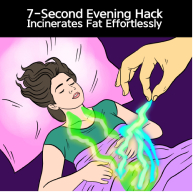Brain fog can cloud your thinking, drain your focus, and impact daily productivity — but there are effective brain fog remedies to help you regain clarity and mental sharpness. Women over 35 often face unique cognitive challenges due to hormonal changes and lifestyle stressors, so understanding how to get rid of brain fog naturally and safely is essential for maintaining optimal brain health. This comprehensive guide explores the multifaceted causes of brain fog and evidence-based strategies, from lifestyle adjustments and supplements to cognitive therapies and the gut-brain connection, empowering you to reclaim focus and cognitive vitality.
Understanding Brain Fog: Causes and Symptoms
Brain fog refers to a cluster of symptoms including confusion, forgetfulness, lack of focus, and mental fatigue. While not a formal diagnosis, it significantly impairs thinking, memory, and concentration, leading to reduced quality of life. Common brain fog causes include chronic stress, poor sleep, nutritional deficiencies, hormonal imbalances, environmental toxins, and certain medications. Medical conditions such as menopause, thyroid disorders, autoimmune diseases, and post-viral syndromes like Long COVID also frequently feature cognitive cloudiness.
Symptoms often encompass:
- Difficulty concentrating or focusing on tasks
- Memory lapses or forgetfulness
- Mental fatigue despite rest
- Slowed processing speed and decision making
- Mood swings and irritability
Persistent brain fog warrants medical evaluation to identify underlying issues, especially if accompanied by other symptoms like sleep disturbances or mood changes.
Natural Brain Fog Remedies: Lifestyle and Dietary Adjustments
Improving lifestyle factors is a cornerstone of addressing brain fog. Small but consistent changes can yield meaningful results over time.
Sleep Optimization
Quality sleep—7 to 9 hours nightly—is vital for memory consolidation and brain detoxification. Establish a consistent sleep schedule, create a dark, cool, and quiet environment, and avoid caffeine close to bedtime. These steps support cognitive reset and reduce fog.
Balanced Nutrition and Hydration
Following a nutrient-rich diet packed with antioxidants, omega-3 fatty acids (found in salmon, walnuts, flaxseeds), B vitamins, vitamin D, and magnesium supports brain health and combat inflammation. Adequate hydration is equally crucial, as dehydration can worsen cognitive symptoms [Alzheimer’s Drug Discovery Foundation].
Regular Physical Activity
Aerobic exercise boosts blood flow and oxygen supply to the brain, stimulates neurogenesis, lowers inflammation, and improves mood and sleep quality. Aim for at least 30 minutes of moderate activity most days.
Stress Management Techniques
Chronic stress elevates cortisol, which disrupts brain chemistry and memory. Incorporate stress reduction practices such as yoga, meditation, deep breathing exercises, or mindfulness. These help lower cortisol levels and improve focus.
Minimize Electromagnetic Exposure and Distractions
Reducing excessive screen time and creating organized, distraction-free workspaces can help prevent cognitive overload and fatigue. Consider scheduled digital breaks and tech-free zones, especially before sleep.
Supplements and Herbal Remedies to Support Cognitive Clarity
Certain supplements may complement lifestyle changes when addressing brain fog, especially when nutritional gaps are present.
Key Supplements for Brain Fog
- Omega-3 Fatty Acids: Vital for brain cell membrane integrity and neuroplasticity; found in fish oil.
- B-Complex Vitamins (B6, B12, Folate): Support neurotransmitter production and reduce homocysteine linked to cognitive decline.
- Vitamin D: Acts as a neurosteroid, important for mood regulation and cognition; deficiencies linked to impairment.
- Magnesium: Especially magnesium L-threonate, helps regulate stress hormones and supports neural function.
- Vitamin C: Enhances memory, attention, and mood regulation; deficiencies can worsen brain fog and depression.
Herbal Nootropics
- Ginkgo Biloba: Enhances cerebral blood flow and reduces oxidative stress, supporting memory and mental clarity.
- Bacopa Monnieri: Traditional herb improving memory formation and cognitive function.
- Rhodiola Rosea: Adaptogen aiding mental fatigue and stress resilience.
- L-Theanine: Found in green tea, promotes relaxation without drowsiness and improves reaction time and memory.
- Turmeric (Curcumin): Anti-inflammatory and antioxidant benefits, best absorbed with black pepper.
Supplements should be used to compliment healthy lifestyle habits and ideally under a healthcare provider’s guidance, particularly to tailor doses and avoid interactions.
Cognitive Therapies and Mental Exercises
Engagement in brain-stimulating activities supports neural plasticity and cognitive resilience:
- Solve puzzles like Sudoku or crosswords to strengthen problem-solving and concentration skills.
- Practice memory recall exercises, such as repeating lists or names.
- Learn new skills or languages to enhance cognitive flexibility.
- Incorporate meditation and mindfulness to reduce stress and improve attention.
- Social interaction and strategic games like chess can enhance executive functions and mental agility.
Post-COVID brain fog recovery can particularly benefit from targeted cognitive rehabilitation programs that include brain games and professional therapies such as occupational, vision, and sensorimotor therapies.
Medical Considerations and Integrative Approaches
Persistent or severe brain fog may reflect underlying medical conditions such as thyroid dysfunction, anemia, chronic fatigue syndrome, or medication side effects. Medications, particularly opioid analgesics, tricyclic antidepressants, and certain sleep aids, can contribute to cognitive impairment and should be reviewed with your healthcare provider.
Integrative approaches combining lifestyle modifications, therapeutic interventions like cognitive behavioral therapy, and medical treatments (including supplements and hormone therapy) often yield the best outcomes. Emerging research also highlights promising post-COVID pharmacologic treatments like N-acetylcysteine (NAC) and guanfacine for managing brain fog symptoms.
The Gut-Brain Connection: Impact on Cognitive Health
Recent studies reveal that gut health profoundly influences brain function through the gut-brain axis—a complex bidirectional communication network involving the nervous, endocrine, and immune systems.
Your gut microbiota produces neurotransmitters such as serotonin and gamma-aminobutyric acid (GABA) and metabolites that cross the blood-brain barrier, impacting mood, memory, and cognitive performance. Disruption of this axis has been implicated in brain fog symptoms, particularly in conditions like long COVID and mood disorders.
Maintaining a healthy gut microbiome through probiotic/prebiotic supplementation, a diet rich in fiber and fermented foods, and targeted nutrition may support cognitive clarity and reduce brain fog [PMC Article on Gut-Brain Axis].
Conclusion: Reclaim Your Cognitive Clarity Today
Brain fog is a multifaceted condition, but understanding its causes empowers you to take meaningful steps toward recovery. Prioritizing sleep, nutrition, physical activity, stress management, and engaging cognitive therapies form the foundation of effective brain fog remedies. When necessary, supplements such as omega-3s, B vitamins, and herbal nootropics can provide additional support. Recognizing the powerful gut-brain connection also opens new avenues for improving mental clarity.
If persistent brain fog interferes with your daily life, consider consulting healthcare professionals who can identify underlying medical issues and tailor a comprehensive, integrative treatment plan for you. Empower yourself today with these natural and evidence-based strategies to clear the mental haze and regain focus.
Frequently Asked Questions (FAQs)
Q1: What are the best natural remedies for brain fog?
A1: Prioritize quality sleep, a nutrient-rich diet with antioxidants and omega-3s, regular exercise, stress reduction techniques like meditation, and cognitive stimulation through puzzles and brain games.
Q2: How can supplements help with brain fog?
A2: Supplements such as omega-3 fatty acids, B vitamins, vitamin D, magnesium, and herbal nootropics like ginkgo biloba may address nutritional deficiencies and support brain function, but they should complement healthy lifestyle habits.
Q3: Can medications cause brain fog?
A3: Yes. Certain pain medications, antidepressants, and sleep aids can affect cognitive function, causing symptoms like confusion and memory lapses. It’s important to review medications with a healthcare provider.
Q4: How does the gut-brain connection influence brain fog?
A4: The gut microbiome produces neurotransmitters and metabolites that communicate with the brain via the gut-brain axis, affecting mood, memory, and cognitive clarity. Gut health optimization can support cognitive function.
Q5: When should I see a doctor about brain fog?
A5: If brain fog significantly impacts daily life, persists despite lifestyle changes, or coincides with other concerning symptoms, seeking medical evaluation is recommended to rule out underlying conditions and tailor treatment.







